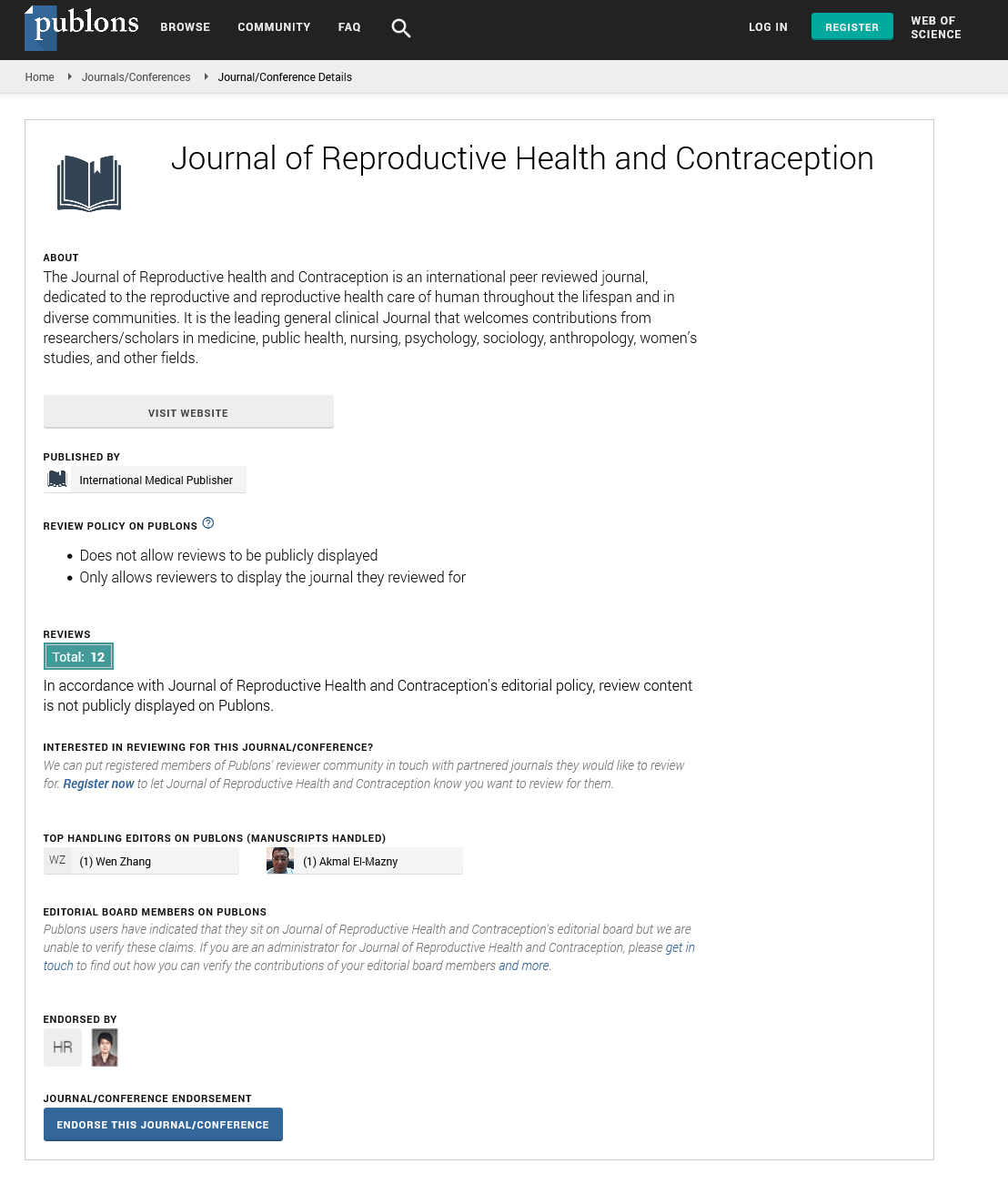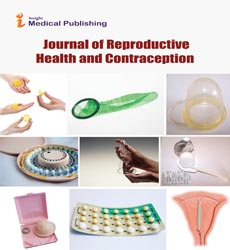Abstract
The Effect of Ibuprofen on Women with Copper Intrauterine Device-Associated Heavy Menstrual Bleeding: A Prospective Cohort Study
Objective: The current study aims to evaluate the effect of ibuprofen on women with heavy menstrual bleeding associated with copper intrauterine devices (CuIUDs). Study design: A prospective cohort study conducted at Assiut Woman's Health Hospital, Egypt, from October 2015 to September 2016 included women complaining of heavy menstrual bleeding with Cu-IUDs. Eligible women received 1200 mg ibuprofen per day for 5 days starting from the first day of menses for three consecutive cycles. The primary outcome was the clinical response of ibuprofen. The secondary outcomes included the observation of its effect on uterine blood flow and the patient's quality of life. Multiple logistic regression was conducted to identify the potential predictors for responsiveness to ibuprofen. Results: One hundred three patients (80.5%) showed response to ibuprofen after three months of treatment. There was a significant decrease in the mean number of bleeding days and sanitary pads after ibuprofen treatment (p=.000). The uterine blood flow was decreased obviously after 3 months following the treatment (p=.000). The bleeding days, uterine volume and uterine pulsatility index were significant predictors for responsiveness to ibuprofen after 3 months of use (p=.003, p=.04, p=.002; respectively). Conclusion: Ibuprofen can effectively decrease the menstrual bleeding associated with Cu-IUDs. This effect may be secondary to the decrease in the uterine blood flow. Satisfactory response to ibuprofen could be anticipated in women with fewer bleeding days, smaller uterine volume and higher uterine pulsatility index at the beginning of treatment.
Author(s):
Abbas AM
Abstract | Full-Text | PDF
Share this

Google scholar citation report
Citations : 201
Journal of Reproductive Health and Contraception received 201 citations as per google scholar report
Journal of Reproductive Health and Contraception peer review process verified at publons
Abstracted/Indexed in
- Google Scholar
- China National Knowledge Infrastructure (CNKI)
- WorldCat
- Publons
Open Access Journals
- Aquaculture & Veterinary Science
- Chemistry & Chemical Sciences
- Clinical Sciences
- Engineering
- General Science
- Genetics & Molecular Biology
- Health Care & Nursing
- Immunology & Microbiology
- Materials Science
- Mathematics & Physics
- Medical Sciences
- Neurology & Psychiatry
- Oncology & Cancer Science
- Pharmaceutical Sciences


